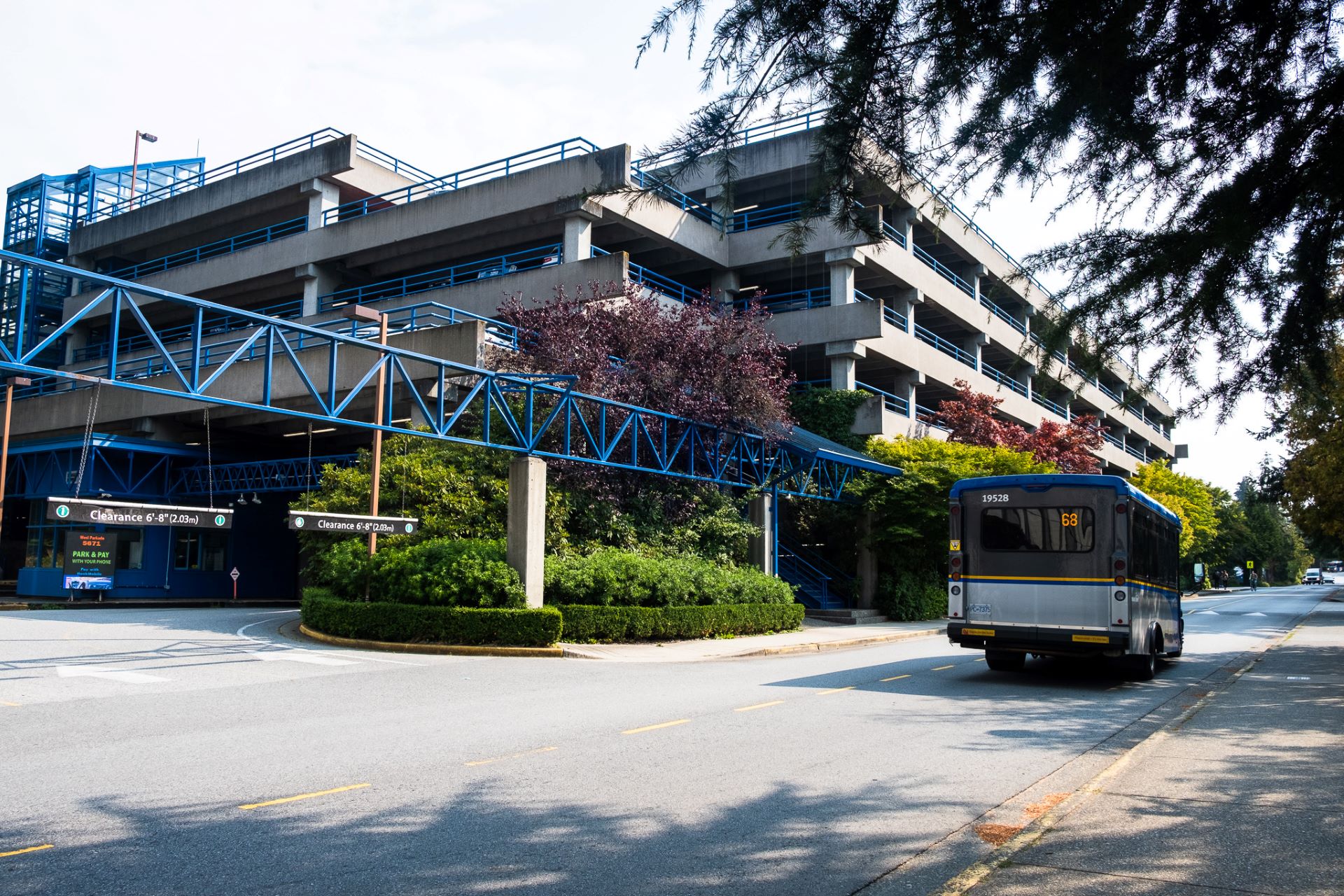This is how to avoid parking on campus
This is how to avoid parking on campus

It’s a bumper-to-bumper commute on the highways even on the best of days. Plus, winning the lottery for campus parking can sometimes feel like winning the actual lottery.
Skip it all by riding transit with your U-Pass BC and letting us do the driving. More ahhhhhs and less #@%&!!s.
Add cycling to your commute
You can take transit all the way, or combine it with walking, cycling, or driving.
Ride your bike to to one of our bike parkades, lockers, or racks. Bike Parkades cost only $1 a day up to a maximum of $8 per month.
Bus lanes on select routes will whisk you by congested traffic.
Combine transit with your drive
Need to drive? Drive part way only and leave your car at a Park and Ride lot, and save on parking fees.
It only costs between $2 and $3 to park all day at our Park and Ride lots, which all connect you with SkyTrain, West Coast Express, or limited-stop express buses such as the 555 Port Mann Express.
Free Wi-Fi is currently rolling out across all buses, SeaBus vessels, SkyTrain cars, transit stations, and major transit hubs. In fact, it’s fully complete on the articulated buses that operate on the 49 Metrotown Station/UBC, R1 King George Blvd and R4 41st Ave RapidBus routes.
A pair of CBC Vancouver reporters pitted the car against the R4 to see who would arrive at the University of British Columbia’s Vancouver campus sooner.
Spoiler alert: it’s the RapidBus.
The time needed to find parking proved to be a knockout punch for the car. That doesn’t even factor in the cost for parking, gas, and wear-and-tear on the vehicle.
Above all, when you ride transit, walk, or bike instead of driving, you are taking one of the biggest steps to shrinking your carbon footprint. Transit is one of the cleanest ways to get around.
TransLink operates one of the largest all-electric fleets in Canada and the United States. The SkyTrain system is powered by electricity, and we are the only system in Canada that operates trolley-electric buses. We also currently have four battery-electric buses in our fleet with 15 additional buses on the way and a plan move to net-zero GHGs and build a more climate-resilient transit system by 2050.






TransLink has 5 e-Buses; 15 more in late late 2023